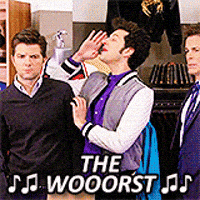What Makes a Great Coach? The Skills That Elevate Leaders and Teams
Let’s set the record straight: coaching isn’t just about giving advice. If it were, every TED Talk would turn people into experts overnight. You could watch a YouTube video and I’d be out of a job. Luckily for me, I suppose, that’s not the case.
Coaching is about unlocking potential, shifting mindsets, and helping people see (and act on) what they’re truly capable of. It’s about transformation, not instruction.
At The Threadsmith Group, we know firsthand that great coaching isn’t about having all the answers. It’s about knowing how to help people find their own. So what makes someone an exceptional coach? And how can leaders apply coaching skills in their own work?
The Essential Skills of a Great Coach
1. They Actually Listen (Like, Really Listen)
You know when you’re talking to someone, and you can just tell they’re waiting for their turn to talk? IT’S THE WOOOORST.
Great coaches listen—not just to the words, but to what’s underneath them. They pick up on the hesitation, the frustration, the “I’m totally lost but pretending I’m fine” moments. And they don’t just nod along; they reflect back, dig deeper, and help people understand themselves better in the process.
2. They Ask the Kind of Questions That Make You Go ‘Oh… Wow’
If coaching was just about giving people answers, ChatGPT would have replaced coaches by now. Instead, coaching is about asking the right questions—the kind that make people stop and rethink everything. The goal isn’t to give someone a checklist; it’s to help them shift their own perspective. Some of the best coaching questions include:
What’s the real challenge here? (No, really?)
If you weren’t afraid of failing, what would you do?
What’s stopping you? And what would happen if you ignored that?
3. They Push You Out of Your Comfort Zone (Because That’s Where Growth Happens)
You know that feeling when you’re about to do something big and your brain starts screaming, Nope, nope, let’s just stay right here where it’s safe? A great coach helps people push through that moment. They don’t force change, but they challenge people to go further than they thought they could. Growth doesn’t happen inside the comfort zone. It happens when someone nudges (or, let’s be real, sometimes shoves) you into a new challenge.
4. They Hold People Accountable (Without Being a Jerk About It)
Coaching isn’t just about “empowerment” and “aha moments”—it’s about taking action. A great coach makes sure people follow through on what they say they’re going to do. But here’s the trick: they do it in a way that feels supportive, not punishing. They don’t say, Why didn’t you do this? They say, What got in your way? What can we tweak to make sure you follow through next time?
5. They See Potential Before You Do
Everyone has blind spots—things they don’t see in themselves, strengths they underestimate. A great coach spots those before you do. They reflect back the strengths, talents, and possibilities that people tend to overlook in themselves. Sometimes, the biggest breakthrough isn’t learning something new; it’s realizing you were capable all along.
Bringing Coaching into Leadership
You don’t have to be a professional coach to use coaching techniques in leadership. In fact, the best leaders naturally integrate coaching into their management style. Here’s how:
Instead of solving every problem, ask guiding questions.
Provide clear, constructive feedback that helps people grow, not just “fix” things.
Give team members space to figure things out on their own instead of jumping in with a solution.
Encourage stretch assignments—push people to take on challenges they don’t think they’re ready for (but totally are).
The Threadsmith Group Approach
At The Threadsmith Group, coaching isn’t just something we do—it’s who we are. Whether it’s executive coaching, leadership development, or team transformation, we help people uncover their potential and take action.
Because great coaching isn’t about giving people answers. It’s about helping them discover the answers they already have.
Let’s build better leaders—together.

